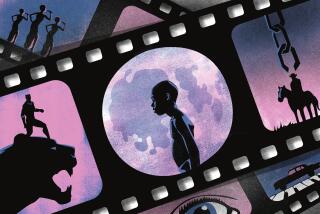The ‘Rosewood’ Story Had to Be Told
As a young African American, I share the comments made by “Rosewood’s” screenwriter, Gregory Poirer (“Setting Record Straight on ‘Rosewood,’ ‘Amos,’ ” Counterpunch letters, March 17). I have long heard rumors and been told stories of many injustices and inhumanities that my ancestors endured at the hand of slavery and racism. However, there are very few films that accurately document these events so that I can have a better sense of what those who came before me actually had to endure. Before we can talk about the reparations made to the survivors, we must tell why there is a need for reparations at all. This movie does that.
I am certain that if both history and Hollywood were to designate an equal amount of time memorializing and glorifying the positive efforts of blacks to succeed against the odds through films, records and books as they do telling drive-by and stickup stories we would inspire a new generation to produce more individuals like Martin Luther King Jr. and Frederick Douglass and fewer gang bangers and criminal rap stars.
“Rosewood” shows the injustices of racism, but it also shows a deep desire to survive by a people and a willingness of others to do what is right regardless of race (the store owner and the little boy). Didn’t “Schindler’s List” do the same thing?
Hats off to all of those executives who realized that this story had to be told. Once this movie is shown on cable, through video rentals and school programs, the impact that it will make will be well worth the investment. While it may not be a box-office smash in Hollywood, it is a mankind smash in the world--something a little more valuable.
CASSANDRA MILLS
Beverly Hills
More to Read
Only good movies
Get the Indie Focus newsletter, Mark Olsen's weekly guide to the world of cinema.
You may occasionally receive promotional content from the Los Angeles Times.










